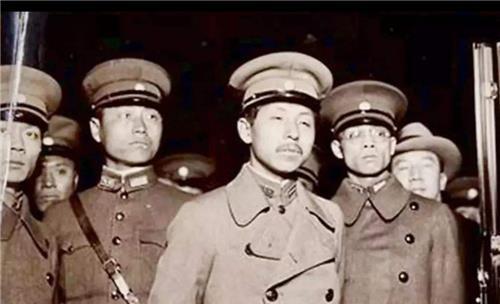"Blue, taken from blue, and blue from blue." This sentence is the best way to describe Zhang Xueliang. He was the son of Zhang Zuolin, a warlord of the northeast of the Tang Dynasty, but unfortunately the northeast was lost in his hands; he inherited the huge inheritance left to him by his father, but after his death he "donated" it to the United States; he was once imprisoned and bound by Chiang Kai-shek for a long time, but he also participated in the promotion of the national anti-Japanese united front. He is such a contradictory and extremely controversial figure, so what happened to Zhang Xueliang that made him have to "donate" a huge and precious cultural heritage to the United States?

Zhang Xueliang was born on June 3, 1901, his father was the famous northeastern warlord Zhang Zuolin. In 1920, Zhang Xueliang had graduated from the academy and served in the army. His father, Zhang Zuolin, originally wanted to put him in the army for a few years of training, and then when he was old, Zhang Xueliang could come out and be alone. But bad luck soon came.
On June 4, 1928, the Japanese used their hands and feet on the train, planted explosives, and then Zhang Zuolin was killed when he passed by the train. At this time of the cusp of the storm, Zhang Xueliang was pushed onto the big stage of northeast politics.
At that time, the Japanese wanted to try their best to win Zhang Xueliang over, but Zhang Xueliang did not waver in the slightest and refused the Japanese request. On December 29, 1928, Zhang Xueliang issued a telegram announcing that Northeast China was willing to abide by the Three People's Principles and submit to the management and rule of the Nationalist government. Although Zhang Xueliang quickly reacted to the Huanggutun incident, he was still too young after all, and this also laid the groundwork for him to lose the northeast in the future.
After Zhang Zuolin's death, he left nearly 300,000 northeastern troops to Zhang Xueliang. Not only that, but the military industry and mineral deposits throughout northeast China are "heritage" of great value. Unfortunately, Zhang Xueliang made a wrong assessment of the situation at that time, so that the northeast was occupied by the Japanese, and he also carried a lifetime of controversy.
Although Zhang Xueliang was unable to preserve the northeast, he still made his own contribution to promoting the anti-Japanese united front. However, he also held Chiang Kai-shek hostage, and then was imprisoned by Chiang Kai-shek for nearly 50 years. It was not until after Chiang Kai-shek's death that he had the opportunity to regain his freedom.
Zhang Xueliang decided to leave Taiwan, and the mainland naturally could not go back, so he went to the United States. Later, Zhang Xueliang felt that he was a great limit, and as for the collection of antiques, calligraphy and paintings and a series of valuable cultural relics in his lifetime, he donated to Columbia University in the United States. In addition to real estate, cash, antique calligraphy and paintings, zhang Xueliang's letters and friends during his lifetime, as well as some precious historical materials, were also handed over to Columbia University.
Zhang Xueliang chose this university because Columbia University has an archive that can properly store these materials. In fact, not only Zhang Xueliang, but also many other celebrities in the world have also placed their relics in the archives of Columbia University. To this day, there is a diary of Chiang Kai-shek in the archives.
Considering the political complexity, Zhang Xueliang did not return these materials and belongings to the motherland. He also didn't want to leave them to his children in case they didn't cause some unnecessary trouble. On October 14, 2001, after dealing with the aftermath, Zhang Xueliang calmly closed his eyes.